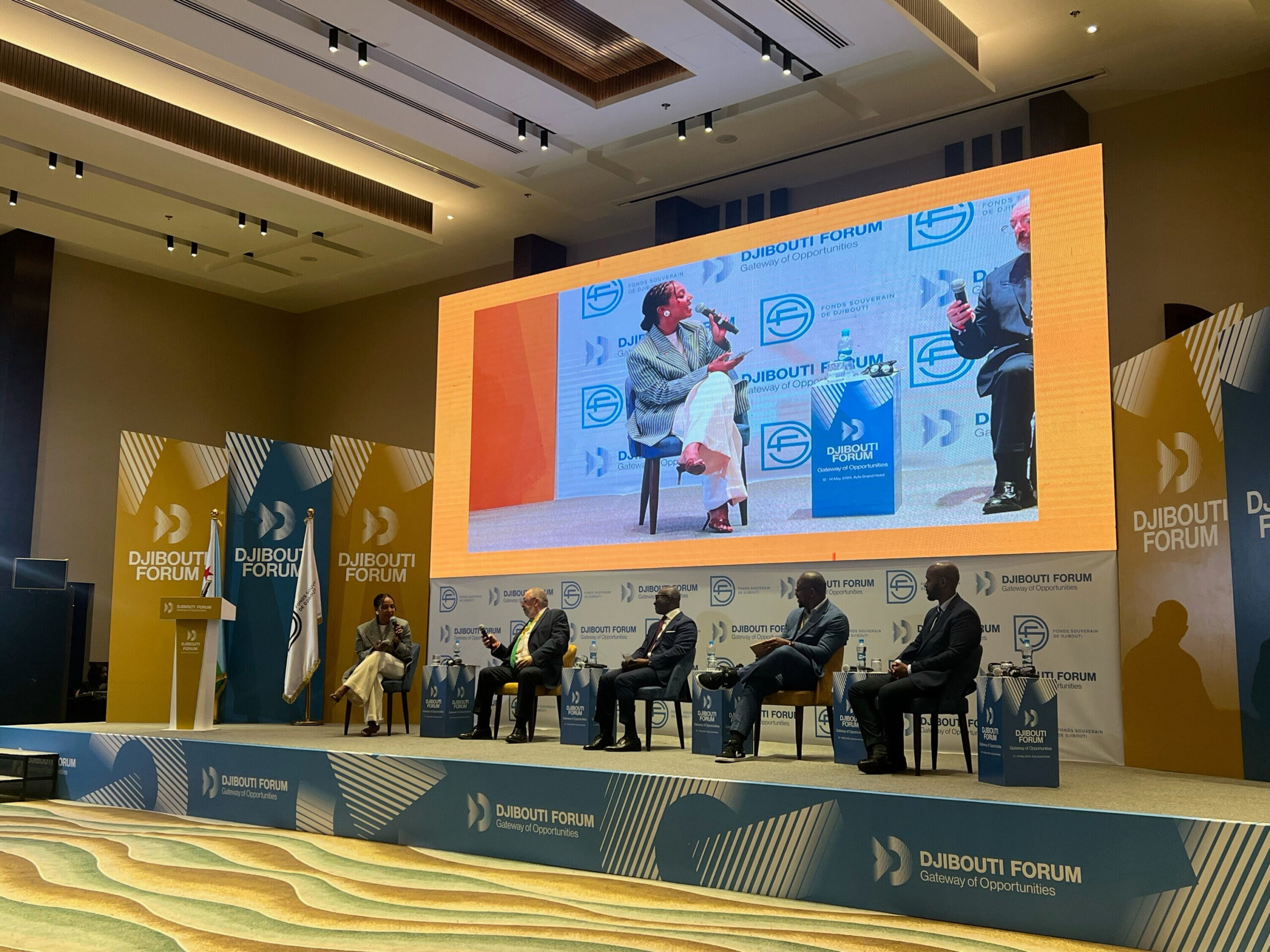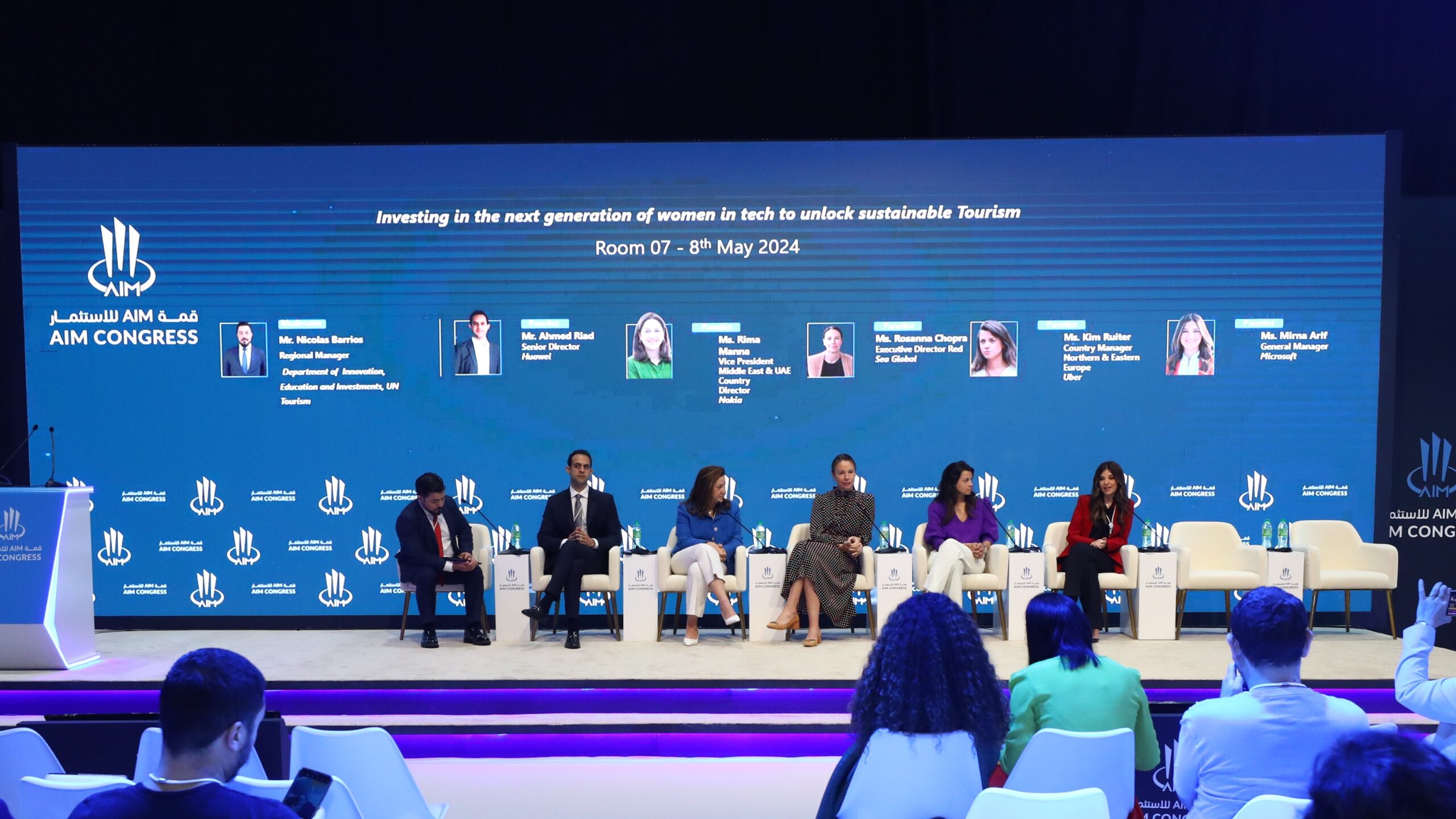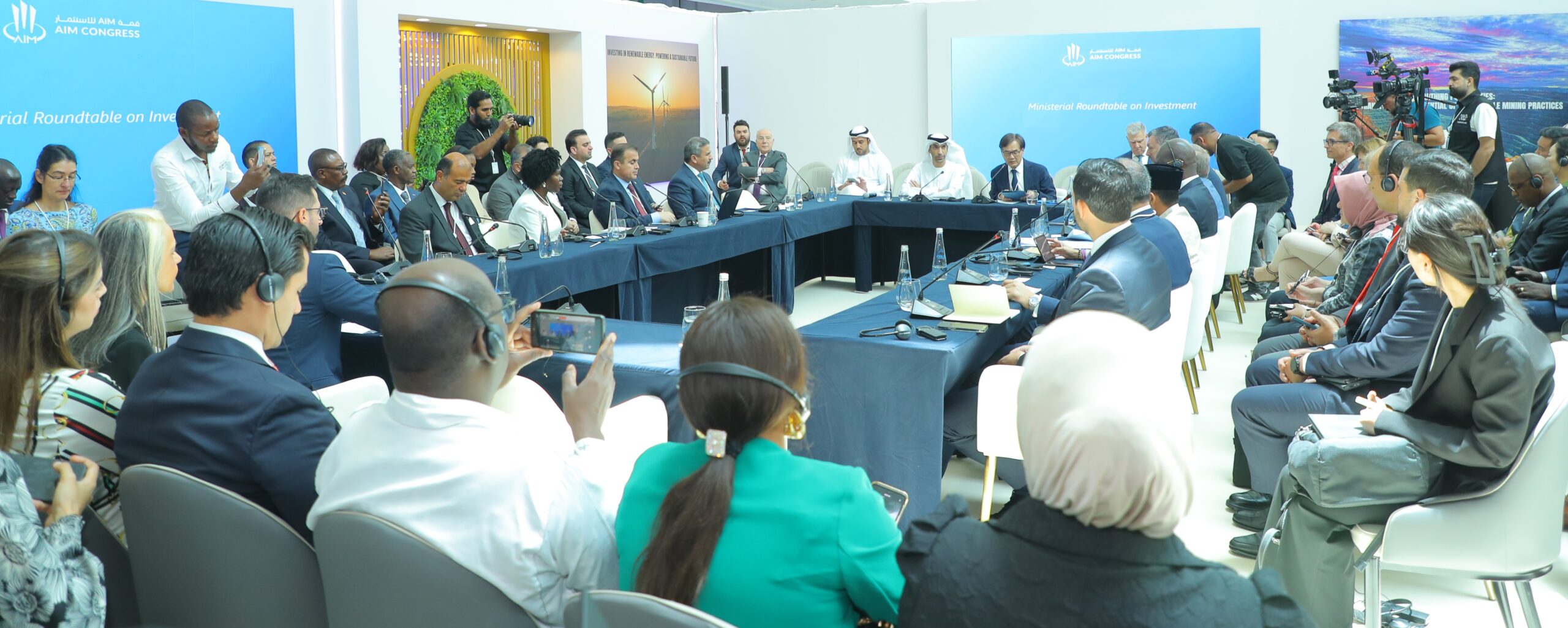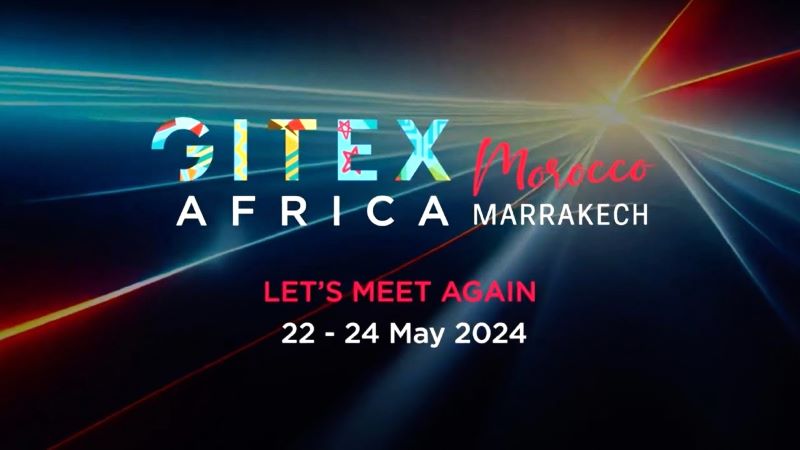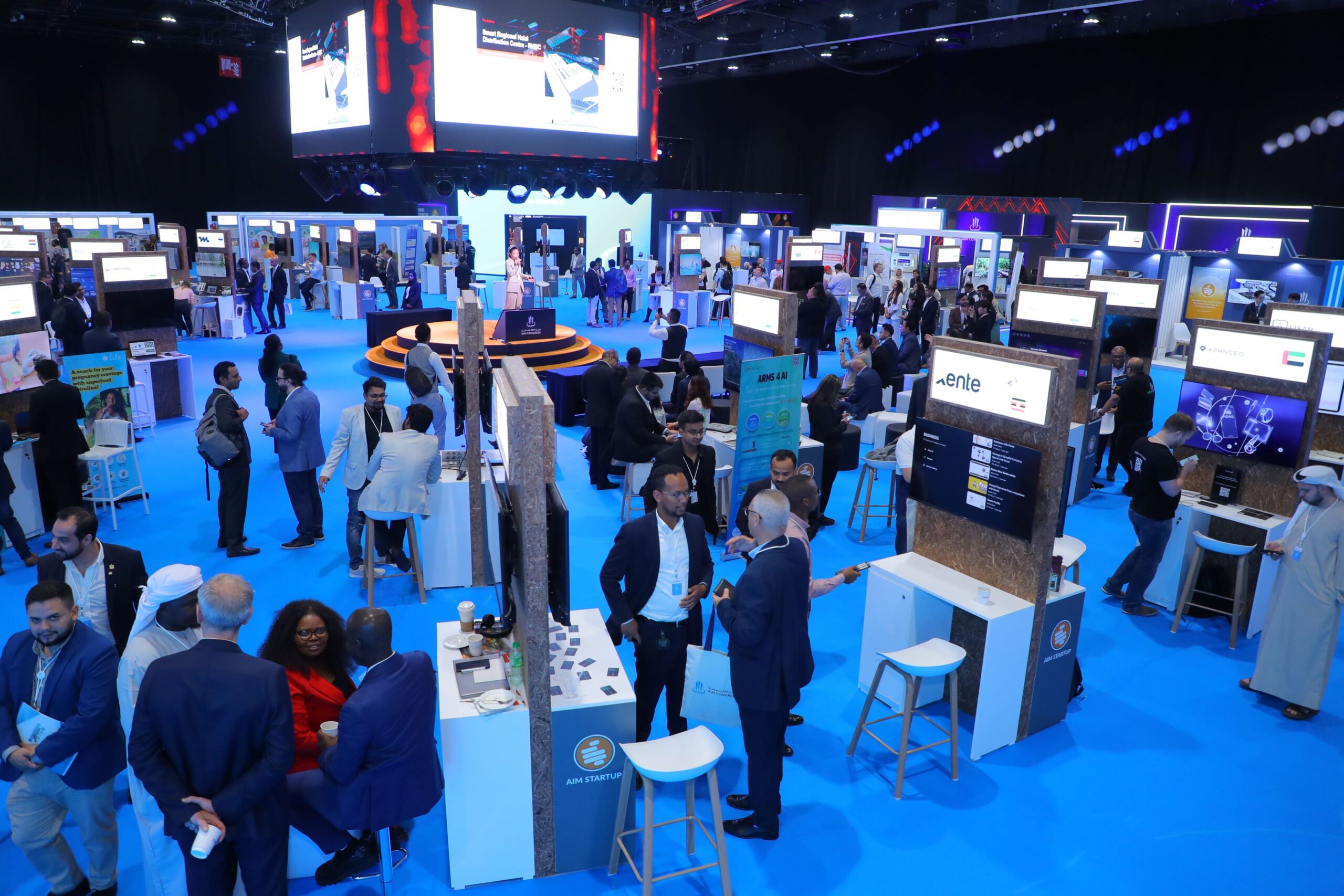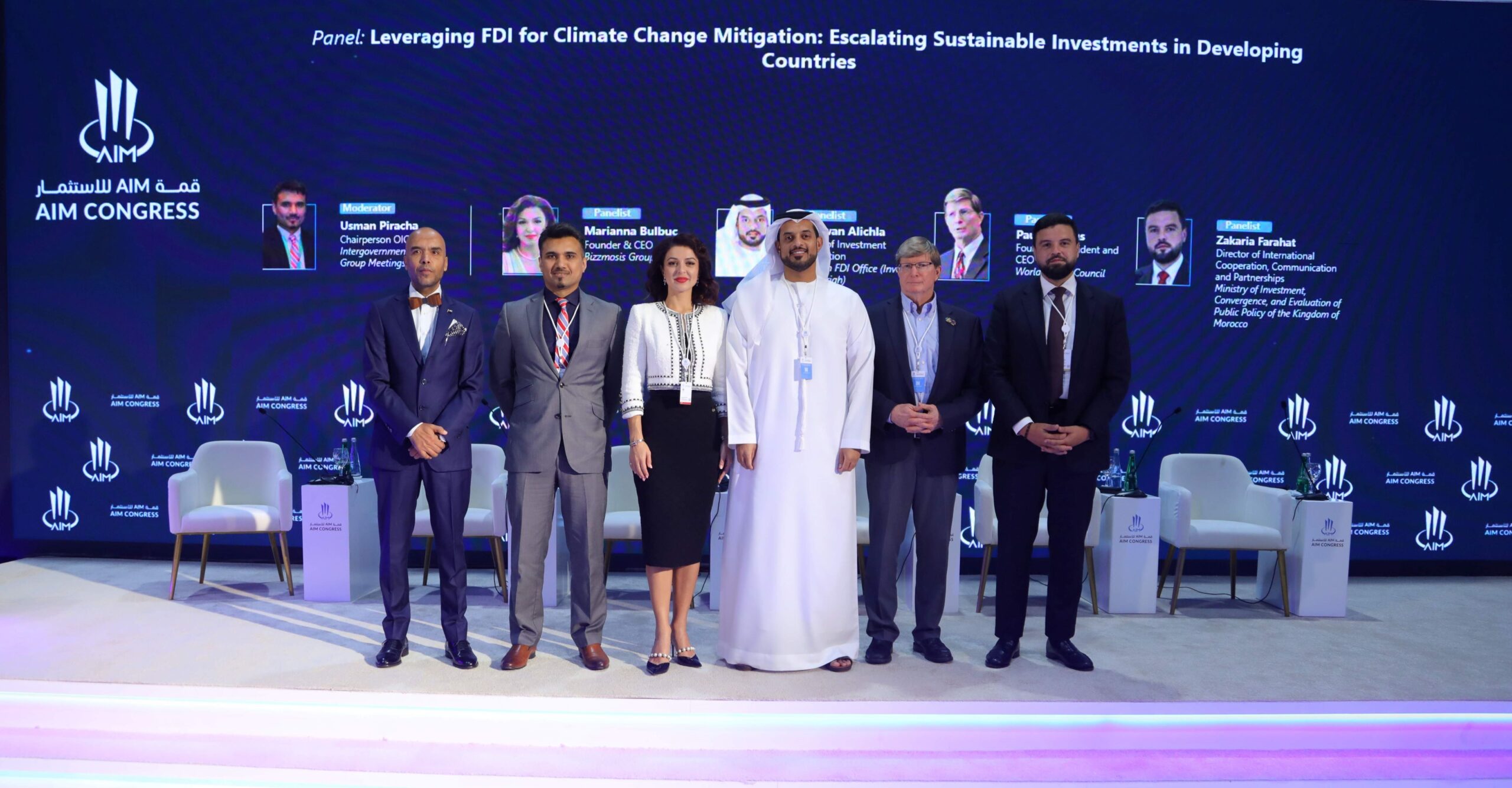Abu Dhabi, 9th May, 2024:: The 2024 AIM Congress, held at the Abu Dhabi National Exhibition Centre (ADNEC) from May 7 to May 9 saw an huge convergence of industry leaders, policymakers, and visionaries.
The Congress sessions were held under the Investment Track, Regional Focus Forum Track,and Investment Destination Track, fostering dialogue, collaboration, and innovative solutions to global challenges.
Investment Track
The “Leader’s Panel: Geopolitical Tensions 2024: New Challenges and New FDI Destinations” session brought together speakers who discussed the landscape of Foreign Direct Investment (FDI). Participants underscored the significance of attracting new FDI to diverse global destinations amidst intensifying competition. Ms Biviana Riveiro Disla, Executive Director of the Export and Investment Center of the Dominican Republic, highlighted her country’s streamlined investment process and strategic focus on sectors like AI and technology.
Mr Daniel Silverman, Vice President of FDI in Quebec, addressed challenges facing FDI in the region, particularly in energy privatization, emphasizing the competitive dynamics with neighboring markets. Ms Ibtisam Al Farooji, Undersecretary of the Ministry of Commerce Industry and Investment Promotion in Oman, emphasized the Sultanate’s commitment to attracting investment, leveraging its strategic location and natural resources to emerge as a leading global destination.
Mr Raymond Siva, Head of Digital Investment at Malaysia Digital Economy Corporation, emphasized the importance of digital talent and infrastructure in fostering investment safety and growth in Malaysia.
During the ‘Fireside Chat’ on FDIs in UAE, Mr Massimo Falcioni, Chief Competitiveness Officer of Abu Dhabi Investment Office (ADIO), highlighted the UAE’s innovative approach to challenges, transforming them into opportunities to attract Foreign Direct Investments (FDIs).
He underscored the UAE’s standing as a premier destination for foreign investors seeking a stable environment and a thriving economy, attributing this to the clear growth and diversification strategy set by the UAE’s president, coupled with efforts in trade agreements and infrastructure development. He emphasized the importance of infrastructure, local demand, and export opportunities, alongside geopolitical stability, as key factors in attracting FDIs.
He also stressed the significance of talent, entrepreneurship, and education as a formula for success in the country.
The session titled “Unlocking the Power of Sustainable Investment” delved into current trends to spur economic growth and attract investors. Speakers Ms Aziza Shaat, Economic and Trade Advisor at the Dutch Embassy in Egypt, and Dr. Pallavi Kishore, Head of Accounting and Finance at Middlesex University Dubai, highlighted that countries with robust economies are magnets for FDI inflows. Dr. Kishore noted that despite the FDI decline in 2020 due to the Covid-19 pandemic, emerging markets in the MENA region, particularly the UAE, Saudi Arabia, and Qatar, continue to attract investments.
Ms Shaat identified challenges such as the lack of ease of doing business and bureaucratic hurdles. However, participants expressed optimism about the future of FDI in the Middle East and Africa.
The session “Leveraging FDI for Climate Change Mitigation” addressed the importance of sustainable investments in developing countries. Speakers Ms Marianna Bulbuc, CEO of Bizzmosis Group; Mr Marwan Alichla, Head of Investment Promotion at Sharjah FDI office; Mr Paul Holthus, Founding President of World Ocean Council; and Mr Zakaria Farahat, Director of International Cooperation at the Ministry of Investment, Convergence, and Evaluation of Public Policy of Morocco, highlighted the role of FDI in supporting climate goals in developing countries.
Alichla discussed Sharjah’s strategy aligned with the UAE’s national agenda, emphasizing sustainability and advanced manufacturing. He noted Sharjah’s strategic location and its success in attracting FDI, resulting in job creation. Bulbuc praised the UAE’s model of collaboration between the public and private sectors in attracting FDIs.
Regional Focus Forum Track
The session titled “Korean International Economic Policy towards the Middle East,” presented by the Korean Institute for International Policy (KIEP). Mr Munsu Kang, a Fellow Doctor at KIEP, outlined the institute’s core objective of contributing to effective international economic policies for South Korea. KIEP has been instrumental in shaping and executing South Korea’s international economic strategies.
The discussion highlighted the significant impact of global trends such as escalating competition between the US and China, protectionism, digital transformation, and regional conflicts on shaping KIEP’s medium- and long-term trade policy directions. Amidst these trends, alliances among middle power countries in the Global South are gaining importance. The session also examined the composition of trade between Korea and the Middle East.
Looking towards future cooperation, the session emphasized energy transition as essential for the post-oil era, with hydrogen, carbon capture and storage (CS), and liquefied natural gas (LNG) supply chains emerging as key areas in the energy sector.
The Korea-GCC Free Trade Agreement aims to open the service market, fostering economic diversification. Cooperation in digital payments, artificial intelligence (AI), robotics, smart factories, entertainment, and gaming sectors was also proposed as areas of focus.
Later, the session “Unlocking Asia’s Potential: Harmonizing Sustainability and Advancing Technology for Economic Development” featured an esteemed panel of speakers. Among these were Renuka Weerakone, Director General, Board of Investment of Sri Lanka; MsEvariste M. Cagatan, Executive Director, Advisor Embassy Investment Promotion, Philippine Board of Investments; Mr Wirat Tatsaringkansakul, Deputy Secretary General, Board of Investment Thailand; Mr V. Enkhbaatar, Director General Advisor, Embassy Investment and Trade Agency of Mongolia; and Mr Raymond Siva, Head of Digital Investment, Malaysia Digital Economy Corporation.
Jonathan Wong, Chief of Innovation, Enterprise, and Investment in the Trade and Investment and Innovation Division at United Nations ESCAP, emphasized the criticality of addressing the SDG investment gap and highlighted Asia-Pacific’s attractiveness for investment due to its resilient economies and abundant opportunities.
The panel discussed various topics including effective positioning of countries in Asia-Pacific as attractive destinations for sustainable development investments, compelling messaging for investors, challenges in attracting sustainable investments, fostering an enabling environment for sustainable FDI, and enhancing regional cooperation.
Ms Weerakone discussed Sri Lanka’s commitment to renewable energy generation and its focus on infrastructure development and gender equality. Ms Cagatan outlined the Philippines’ aspirations to become a hub for sustainable manufacturing in Southeast Asia, emphasizing renewable energy and critical mineral processing. Mr Tatsaringkansakul emphasized collaboration between the public and private sectors in Thailand to transition to renewable energy.Mr Enkhbaatar highlighted Mongolia’s rich natural resources and investor-friendly regulations. Mr Raymond Siva showcased Malaysia’s transition to a digital economy and its focus on talent accessibility and sustainability.
Another session titled “Empowering Europe’s Future: A Strategic Investment Drive for Growth and Competitiveness” unfolded under the European Regional Focus Forum. Ms Lucie Berger, Ambassador of the European Union to the UAE, emphasized the importance of leveraging crises to build resilience and competitiveness. Prof. Henrick Von Scheel and Leon Delvaux underscored the EU’s significant role as a global investment player and highlighted the immense opportunities for investment, with FDIs in the EU totaling $8 trillion.
The panel aimed to harness skills, expertise, and resources within Europe to foster cross-border opportunities and address economic challenges for a sustainable future. The focus was on policy initiatives, resilience building, and global collaboration.
Other paneslists included: Alexis Rostand, Managing Director, Eiffel Investment Group, who stressed her Group’s focus on sustainable investment strategies and global expansion. Mr Jean-Mari Frentz, Executive Director, Luxembourg Trade and Investment Office, highlighted Luxembourg’s attractiveness for FDI and its leadership in green finance. Dr. Joseph Gerada, Regulator, The Family Business Office – Malta, discussed Malta’s support for family businesses and succession planning. Mr Luca Lazzaroli, Director General, Portfolio Management and Monitoring, European Investment Bank, outlined the Bank’s role in financing climate projects across regions. Mr Johannes Brunner, Commercial Counsellor, Austrian Embassy to the UAE. Mr Marios Tannousis, CEO, Invest in Cyprus, discussed the significant EU-GCC trade relations, emphasized Cyprus’s focus on tech startups, R&D, and collaboration for economic development in the European market.
Investment Destination Track
During the Oman Investment Destination Forum, a session titled “Country and Company Presentation” provided valuable insights into investment opportunities in Oman. Moderated by Omar Al Harthi, Senior Business Development Executive at Invest Oman, the session featured presentations from Invest Oman and Asyad Group.
Al Harthi highlighted Invest Oman’s pivotal role in Oman’s economic transformation across sectors like logistics, food security, tourism, mining, and manufacturing.
The company is pioneering new sectors such as green cement production and boutique luxury tourism. Oman’s appealing laws and legislation, offering incentives like up to 100 percent foreign ownership and tax exemptions, make it an attractive destination for investors seeking sustainable ventures.
Mr Yasin Al Busaidi, Business Development Director at Asyad Group, discussed the group’s focus on enhancing trading activities through streamlined import and export processes.
The group aims to become the leading hub in the logistics sector, leveraging Oman’s robust infrastructure, including ports and roads. The presentation highlighted the Hafeeth Rail Project, a significant initiative connecting Oman’s Sohar Port with the UAE rail network, fostering regional integration and economic growth.

